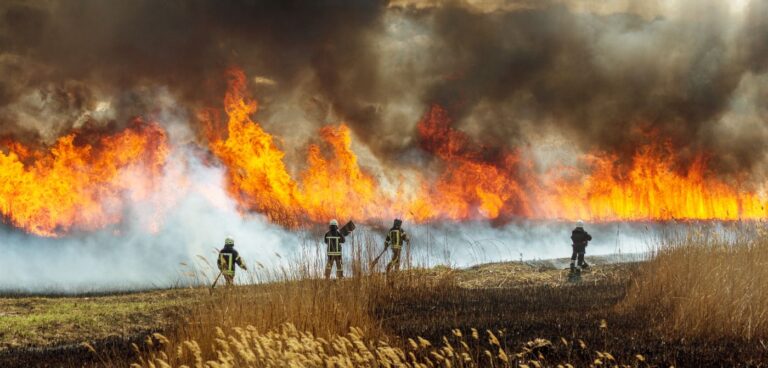A new study, led by a scientist at the National Center for Atmospheric Research (NCAR) and co-authored by 86 other fire experts from a breadth of disciplines, highlights the obstacles for fire science and provides guidance for investing in future research.
Published in the Proceedings of the National Academy of Sciences (PNAS) Nexus journal, the study outlines five key challenges to advancing the study of fire – ranging from promoting coordinated research to drawing on diverse sources of knowledge.
The commentary is a follow-up to a five-day innovation lab, sponsored by the US National Science Foundation (NSF), which brought together diverse research communities in May 2021 to develop a roadmap for new research directions.
Jacquelyn Shuman, a scientist at NCAR and the study’s lead author, said, “We need to develop a proactive fire research agenda that helps create safe communities and ecosystems. This requires a more cross-disciplinary approach and building diverse partnerships to make better use of the knowledge that exists.”
The scientists are making their recommendations at a time when wildfires pose an increasing global risk, spurred largely by climate change, generations of fire suppression and more development in the wildland-urban interface. Recent decades have seen a substantial increase in the length of fire season as far north as the Arctic, as well as intense conflagrations from the Pantanal tropical wetland in South America to the peatlands of tropical Asia. In the western USA, warmer and drier conditions have spurred fires that have burned nearly twice the area in the 21st century compared to the late 20th century.
Despite the growing wildfire destruction, the authors emphasize fire is a fundamental part of ecosystems globally, and it has been used by society to manage landscapes for millennia.
Using increasingly advanced observing systems, field campaigns and computer models, scientists can now better understand and anticipate wildfire behavior, as well as the effects of smoke on air quality. However, such advances have often been made in isolation, instead of being incorporated into a comprehensive and holistic understanding of the causes and impacts of fires.
Recognizing the need for a more convergent approach, the innovation lab in 2021 brought together experts at federal agencies and universities. They represented fields ranging from ecology, forestry and anthropology to geomorphology, hydrology, and computer science, among others. The five challenges outlined in the paper, which built on those discussions, are the integration across disciplines by promoting coordination among physical, biological and social sciences.
The paper outlined that fire research currently is siloed within disciplines such as forestry, atmospheric chemistry and others, but that wildfire is a biophysical and social phenomenon that cannot be understood with any single disciplinary lens. It also discussed how to embrace different ways of knowing and knowledge generation to identify resilience pathways, stating that humans from diverse groups and perspectives, including Indigenous peoples of tribal nations, could provide scientists with invaluable insights into fire.
The researchers also want to use fire as a lens to address fundamental science questions. Fire is such an ancient and pervasive phenomenon that it can be used to help gain new insights into a range of sciences, including ecology and evolutionary biology, the evolution of Homo sapiens, and social dynamics. The researchers also intend to capitalize on the “firehose” of data to support community values. With more data now available to study fire in the biosphere than ever before, the scientists asserted the need for funding to harness the data revolution and aid our understanding of fire. Furthermore, the scientists intend to develop coupled models that include human dimensions to better anticipate future fire. To better anticipate future fire activity and its impacts, scientists plan to develop more advanced computer modeling systems that incorporate both the human and non-human dimensions of fire.
Shuman said, “We have far more information about fires than before, but we need increased funding and better coordination to deploy it on a global scale. This will enable us to be more proactive as we work to help society and ecosystems become more resilient to the increasing risk of fires.”



